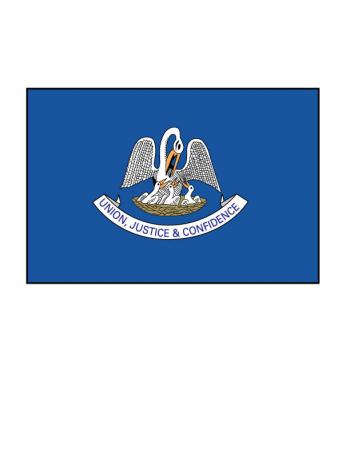
Trial opens for claims over Katrina flood damage
GRETNA (AP) — A trial for claims that a suburban New Orleans parish is liable for catastrophic flood damage during Hurricane Katrina opened Thursday with dueling explanations for a fateful decision to evacuate the parish’s drainage pump operators on the eve of the 2005 storm’s landfall.
Jefferson Parish attorney Dennis Phayer told jurors that officials carried out the parish’s “Doomsday Plan” and evacuated more than 200 pump operators to save their lives.
“They were predicting the end of the world,” Phayer said of forecasts that had called for a Category 5 storm to hit the New Orleans area before Katrina jogged to the east just before landfall on Aug. 29, 2005.
But plaintiffs’ lawyers countered that the parish recklessly exposed more than 40,000 homes and businesses to flooding by implementing a poorly formulated plan that few officials knew about before Katrina. They claim the parish would have avoided massive flooding if the pumps hadn’t been left unmanned for more than 12 hours, allowing drainage canals to overflow.
“They had a plan that nobody knew about, and it was a plan that caused catastrophic circumstances,” plaintiffs’ attorney Darleen Jacobs said.
Twelve jurors and six alternates are expected to hear around three weeks of testimony for the class-action litigation against the parish and Aaron Broussard, who was parish president at the time. A retired judge from a different parish is presiding over the trial in state court because all of the 24th Judicial District Court’s judges disqualified themselves.
Jurors on Thursday heard videotaped testimony by Broussard, who is serving a prison sentence in North Carolina for his role in an unrelated bribery plot. During his 2007 deposition, Broussard said he hadn’t heard of the Doomsday Plan before Katrina and didn’t make a unilateral decision to evacuate the pump operators along with other parish employees. He said the plan was “implemented as designed.”
Jacobs said many officials, including parish council members and the pump workers’ supervisor, also hadn’t heard about the plan or knew that pump workers would be evacuated.
“Does that make sense to you?” she asked jurors.
Plaintiffs’ attorney Richard Martin said it was “reckless and outrageous” for Broussard not to know about the plan since he was the only parish official with the authority to evacuate parish employees.
“What a great name, the Doomsday Plan,” he said. “It was prophetic.”
Walter Maestri, who was the parish’s emergency operations director when Katrina struck, amended the Doomsday Plan several months before the storm to change the destination for an evacuation. Instead of sheltering them at an airport in Jefferson Parish, the revised plan sent pump workers on a 110-mile trip to a different parish.
“Little, small things can have terrible consequences if nobody is paying attention,” Martin said of the revision.
Maestri, who wrote the original Doomsday Plan in 1998, has called it a “living document” that was constantly being revised. Broussard, however, claimed he didn’t learn of its existence until after Katrina.
“One thing you will not hear about Aaron Broussard is that he was a micromanager,” Phayer said.
Phayer said the two-page Doomsday Plan was part of a 400-page document that governed the parish’s response to many kinds of emergencies. Before the plan’s revision in 2005, Broussard had told one of his top deputies that he valued lives over property and didn’t want anyone to die on his watch, Phayer said.
The parish also had hired engineers who determined none of its buildings could withstand a Category 4 or 5 storm, according to Phayer.
“If you want to save these people’s lives, you’ve got to get them out of the parish because there’s no place to put them,” he said.
In 2008, a state appeals court refused to dismiss plaintiffs’ claims that the evacuation of pump operators constituted “willful misconduct.” The appeals court also allowed the plaintiffs to proceed with claims that the parish failed to properly draft and implement its emergency plan.
Phayer said “reasonable minds” can disagree on whether parish officials made the right decisions in preparing for Katrina, but he said there is no evidence of willful misconduct on their part.
“Ill motive? Bad faith? Preposterous,” he said.
Broussard resigned in 2010 amid a corruption probe that also produced charges against his former wife and two other former parish officials. A federal judge sentenced Broussard to nearly four years in prison after he pleaded guilty in September 2012 to charges he cheated taxpayers in a payroll fraud scheme and took payoffs from a parish contractor.
- Log in to post comments
